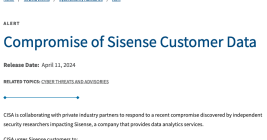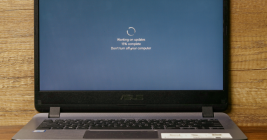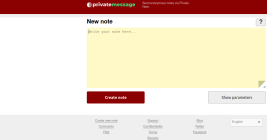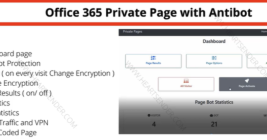Author Archives: BrianKrebs
Russian FSB Counterintelligence Chief Gets 9 Years in Cybercrime Bribery Scheme
The head of counterintelligence for a division of the Russian Federal Security Service (FSB) was sentenced last week to nine years in a penal colony for accepting a USD $1.7 million bribe to ignore the activities of a prolific Russian cybercrime group that hacked thousands of e-commerce websites. The protection scheme was exposed in 2022 when Russian authorities arrested six members of the group, which sold millions of stolen payment cards at flashy online shops like Trump’s Dumps.
Who Stole 3.6M Tax Records from South Carolina?
For nearly a dozen years, residents of South Carolina have been kept in the dark by state and federal investigators over who was responsible for hacking into the state’s revenue department in 2012 and stealing tax and bank account information for 3.6 million people. The answer may no longer be a mystery: KrebsOnSecurity found compelling clues suggesting the intrusion was carried out by the same Russian hacking crew that stole of millions of payment card records from big box retailers like Home Depot and Target in the years that followed.
Crickets from Chirp Systems in Smart Lock Key Leak
The U.S. government is warning that smart locks securing entry to an estimated 50,000 dwellings nationwide contain hard-coded credentials that can be used to remotely open any of the locks. The lock’s maker Chirp Systems remains unresponsive, even though it was first notified about the critical weakness in March 2021. Meanwhile, Chirp’s parent company, RealPage, Inc., is being sued by multiple U.S. states for allegedly colluding with landlords to illegally raise rents.
Why CISA is Warning CISOs About a Breach at Sisense
The U.S. Cybersecurity and Infrastructure Security Agency (CISA) said today it is investigating a breach at business intelligence company Sisense, whose products are designed to allow companies to view the status of multiple third-party online services in a single dashboard. CISA urged all Sisense customers to reset any credentials and secrets that may have been shared with the company, which is the same advice Sisense gave to its customers Wednesday evening.
Twitter’s Clumsy Pivot to X.com Is a Gift to Phishers
On April 9, Twitter/X began automatically modifying links that mention “twitter.com” to redirect to “x.com” instead. But over the past 48 hours, dozens of new domain names have been registered that demonstrate how this change could be used to craft convincing phishing links — such as fedetwitter[.]com, which is currently rendered as fedex.com in tweets.
April’s Patch Tuesday Brings Record Number of Fixes
If only Patch Tuesdays came around infrequently — like total solar eclipse rare — instead of just creeping up on us each month like The Man in the Moon. Although to be fair, it would be tough for Microsoft to eclipse the number of vulnerabilities fixed in this month’s patch batch — a record 147 flaws in Windows and related software.
Fake Lawsuit Threat Exposes Privnote Phishing Sites
A cybercrook who has been setting up websites that mimic the self-destructing message service Privnote.com accidentally exposed the breadth of their operations recently when they threatened to sue a software company. The disclosure revealed a profitable network of phishing sites that behave and look like the real Privnote, except that any messages containing cryptocurrency addresses will be automatically altered to include a different payment address controlled by the scammers.
‘The Manipulaters’ Improve Phishing, Still Fail at Opsec
Roughly nine years ago, KrebsOnSecurity profiled a Pakistan-based cybercrime group called “The Manipulaters,” a sprawling web hosting network of phishing and spam delivery platforms. In January 2024, The Manipulaters pleaded with this author to unpublish previous stories about their work, claiming the group had turned over a new leaf and gone legitimate. But new research suggests that while they have improved the quality of their products and services, these nitwits still fail spectacularly at hiding their illegal activities.
Thread Hijacking: Phishes That Prey on Your Curiosity
Thread hijacking attacks. They happen when someone you know has their email account compromised, and you are suddenly dropped into an existing conversation between the sender and someone else. These missives draw on the recipient’s natural curiosity about being copied on a private discussion, which is modified to include a malicious link or attachment. Here’s the story of a recent thread hijacking attack in which a journalist was copied on a phishing email from the unwilling subject of a recent scoop.











